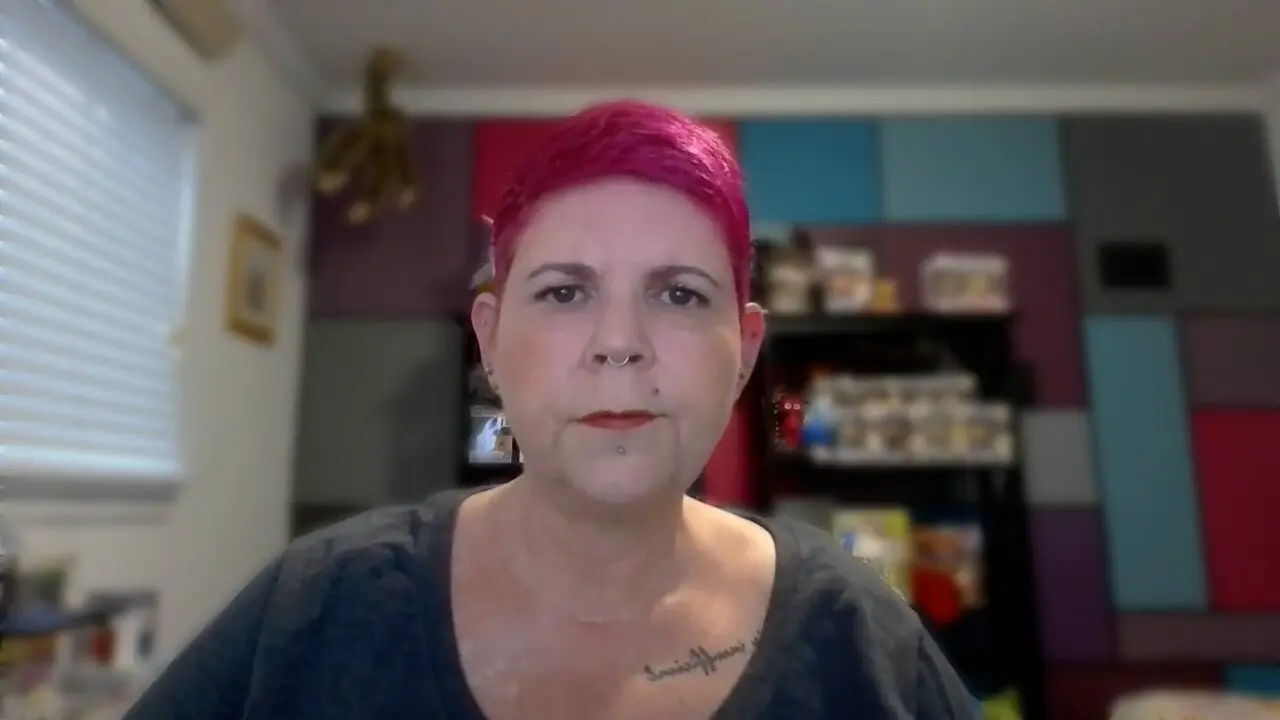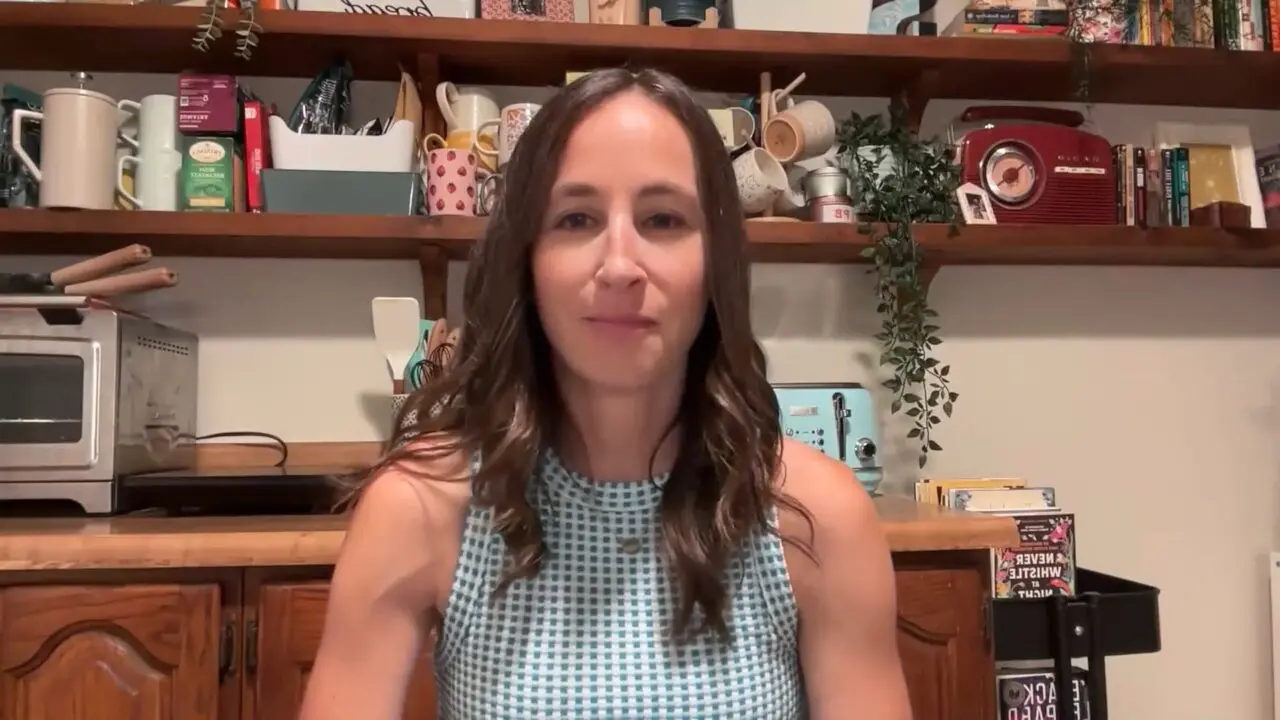PLEASES
The PLEASES skills for wellbeing help you care for your emotional health by caring for your physical health.
Stories

My attitudes towards food and weight and body image have been informed by social messaging and my family of origin. What the Please skill reminds me to do is notice how foods make me feel.

Sometimes I wonder why I react so strongly to some situations. I tend to judge myself, blame myself, and there's a lot of guilt because I'm not able to regulate my emotions.

The way I use the PLEASE skills is as a reminder of why I might be feeling really anxious or really sad. Understanding that if I didn't sleep well, if I didn't eat well...understanding that those things impact my mental health.

Sometimes it can feel like our thoughts or emotions are coming out of nowhere, when really there's a lot of physical factors.

The PLEASE skill helps me have more self‑compassion, which is something I struggle with. My go‑to is not to have gentleness when it comes to me.
Community Tips
My high school yearbook quote was ‘There will be sleeping enough in the grave.’ That belief and my genetic make‑up pushed me into my first psychotic episode. Now I don’t have psychotic episodes, I believe mostly because I carefully manage my sleep.
Medication was key for me. My psychiatrist was super patient. It wasn’t until the second time that we tried Lithium that it helped me.
I think back to the major accidents in my life ‑ and they ALL happened when I was super overtired: all four of my fender benders, all three of my ER visits requiring stitches, and the times I’ve damaged important relationships.
After a night without sleep, you are like a drunk driver. I just know I’m eventually bound to break down emotionally without sleep. It’s not worth it.
I used to eat a huge amount when I felt confused or sad. It did give me temporary relief ‑ but then the blood surge spike and fall would mess with me afterwards. I’m slowing that cycle down.
The PLEASES skill was one thing that got me to address my eating ‑ because I know Over time, Opposite Action, managing Triggers, Mindfulness of Current Emotion, and a support group helped me transition out of my restrictive eating.
This video about sleep changed my life. I’ve shared this video with all of my family and friends at least once.
I use the Finch app to help me be more consistent with the PLEASES. It is cute and rewarding. Feel free to add me here https://app.befinch.com/share/vDch - my friend code is LJ*E#7fXy^tqlwJUBlOr.
I’m on the Finch app too. I get overwhelmed by the thought of building a life worth living. I use this to make small amounts of progress, at least half of the days.
Why Use this Skill
Emotions live in the body. When you’re sick, hungry, or tired, you’re more likely to feel painful emotions, and you’re more likely to feel those emotions more strongly. In order to feel less overwhelmed by emotions and to feel less stressed, you must take care of your physical body.
When to Use This Skill
Use PLEASES when:
- You want to feel better in general and reduce emotional vulnerability.
- You want to practice self-care, embodiment, self-respect, or self-compassion more in your life.
- You want to feel more capable of building a life worth living.
How to Use This Skill
To take care of your emotional health, you must take care of your physical health. The “PLEASES” skillset from DBT can help you pay attention to what’s most important for physical self-care:
- PhysicaL Illness
- If you’re physically ill, you’re going to have a harder time regulating your emotions.
- Take prescribed medications as prescribed, and go to the doctor’s office as needed. Find affordable and affirming doctors, the best you can.
- Use medications, supplements, or foods that help you with chronic pain or acute symptoms.
- Eating
- Both eating too little and eating too much can make you more emotionally sensitive. Certain foods may also make you feel worse emotionally.
- Pay attention to how you feel after eating certain foods. Notice if you feel better eating at certain times, rather than others. Eat accordingly. Eat regularly.
- Talk to your doctor or a licensed dietician about any concerns.
- Mood-Altering Substances
- While alcohol and drugs can help you feel better in the short-term when you’re anxious or upset, they can make you feel worse in the long-term. They can really hurt your sleep.
- Pay attention to how you feel the morning after you drink or use drugs, as well as the couple days after. How do you sleep (compared to nights you don’t use)? Do you feel more irritable or anxious? Do you feel guilty, ashamed, or regretful about how you acted under the influence? If so, consider reducing or stopping drinking/using.
- If you struggle to stop drinking/using, consider getting support from AA, SMART Recovery, The Luckiest Club, Now Matters Now meetings, or other support groups. Talk to your medical doctor about medications that may be able to help.
- Sleep
- Sleeping too much or sleeping too little can make you irritable, anxious, or sensitive.
- Try to get 7-9 hours of sleep at the same time every night.
- Try sleep hygiene tips, like using earplugs or noise machines, using blackout curtains or eye masks, keeping your bedroom cool, and keeping your phone and laptop out of the bedroom.
- Exercise
- Regular exercise reduces depression, anxiety, and generalized stress. Feeling stronger physically can help people feel stronger emotionally.
- Download an app or use a “beginner’s” exercise program (e.g., the “couch to 5k” running program) if you’re new to exercise.
- Do more of whatever movement you can do, even if it’s for just a few minutes every day. Find exercises you can do in bed or at home.
- Join a gym, running club, or yoga class. Having accountability can help, and exercising in a group can make it more fun.
- Sensory Input
- If you are over- or under-stimulated in any of your senses, you’re going to have a harder time regulating your emotions.
- Try to eliminate or reduce uncomfortable and aggravating sense experiences, like annoying sounds, too-bright lights, scratchy clothes, or continually distracting work environments.
- Try to regularly engage in self-soothing activities.
Resources
Sensory Self‑Assessment
Free resource for exploring your personal sense experiences, from Dr. Kiki Fehling
Importance of Sensory Health
Brief video describing how your senses can impact your overall health, by @dbtkiki on Instagram
Supportive Resources
Case Management, Food, Financial Assistance, Health Care, Housing, Medications, Mental Health Care, Work
Related Skills
Safety Plan
Plan for the next time you feel suicidal or overwhelmed.
Grounding Skills
Calm down and center yourself using physical sensations.
Paced Breathing
Breathe slowly and deeply to regulate your nervous system.
Caring Messages
Connect with and help others with brief messages.